
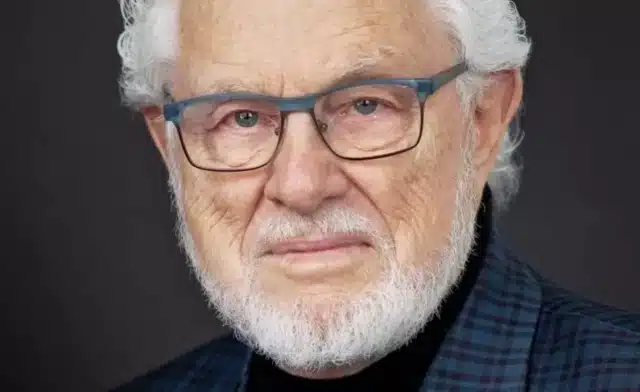
Copied :- https://dispatchesfrombrian.com/2024/07/02/a-personal-story/
David, my oldest brother, is dead. The news came without surprise. He had been very unwell, and we had had multiple final goodbye visits.
But as I sit on the front deck of our summer cottage northeast of Toronto, memories of our life together flood in. Here, some 50 summers ago, he and I slowly worked our way through winding roads to find this cottage. Its previous owner had been one of our father’s parishioners at a Saskatchewan church in the mid-1930s, a time of grinding poverty, dust storms and the Depression. He decided to sell, and when he heard that “Hilmer’s boys” wanted it, it was a short step from there for Dave and me to own it.
Our father died at 61. I was 29. Dad, an ordained minister, was such an encourager in my early days of church ministry. But in our boyhood years, Dave, five years my senior, was my hero. He was just old enough to seem wise and I was sufficiently younger not to be too much of a pain. With Dad’s passing, Dave became more than an older brother. I found myself seeking his approval, which he gave, salted with healthy questions on what mattered.
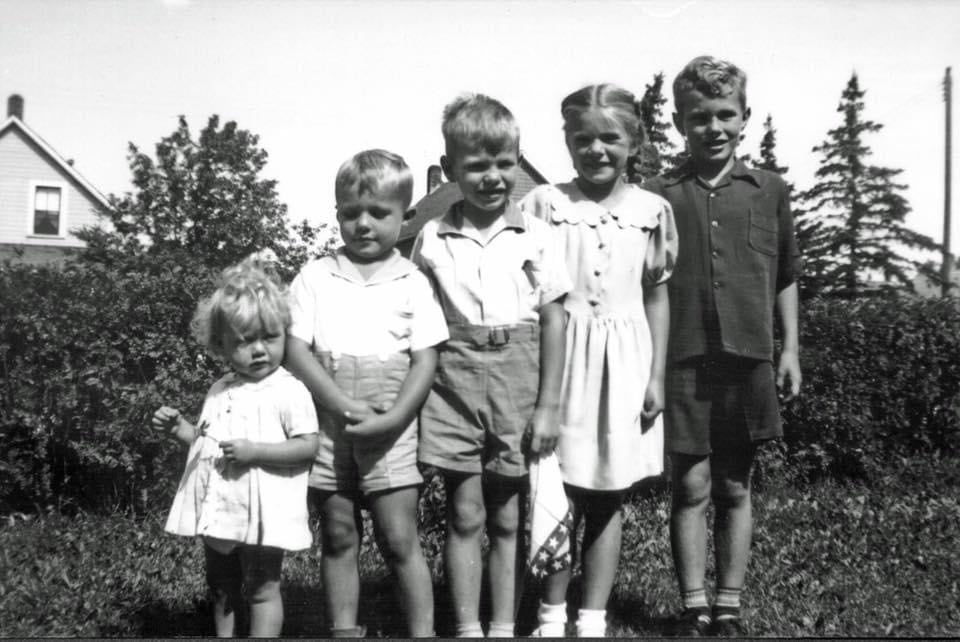
Along the way, he became my ethical North Star, a compass on values and priorities. While always an encourager, he wasn’t remiss in asking discomforting questions about faith or leadership, pushing me to the essentials of our calling and beliefs. He refused to let tradition, style, or popularly accepted doctrines carry the day unless there was a convincing rationale. That’s not to say he was a rationalist. His conversations were filled with love, empathy, and feelings which filled his life and guided his calling and giving.
Two factors about our lives will help you understand us better. First, our home was a Pentecostal parsonage (some call it a manse) on the Canadian prairies during the 1940s and 1950s. We were poor without actually being aware of it. Dave was the oldest of five children. As Pentecostals, we were outliers: Roman Catholics found us curious; mainline Protestants called us “holy rollers”; Evangelicals considered us heretical. Dad turned that problem inside out by becoming their friends. He found money to make our childhood plentiful and rich. Missionaries spiced our childhood with stories from faraway lands and of those in need. Bob Pierce, founder of World Vision, came through town, and we spent an evening with him. From those early days, Dave nurtured a heart for the poor, a seed that pushed above ground in a time of tragedy and deep sorrow.
The second key factor is David’s response to suffering. David and his wife, Ev, had two boys and then a girl, Jill. She was beautiful, happy, and the apple of David’s eye, but in her late teens, her life ended. Grief hit us hard, as wrenching and widespread as I’ve seen. Our family clung together for days, pressed closely together, seeking comfort.
While we knew it didn’t happen because God set in motion this sequence of human tragedy, even so, all sorts of reasons were exploited to afford a rationale. And I suppose we invented a few.
But David and Ev saw, over time, how their tragedy could be used for good. When someone lost a child or family member by suicide, they would be on that family’s doorstep. When a young person doubted faith, David and Ev would spend hours listening to their stories, offering ideas as to how faith affected and guided their lives.
After Jill died, Dave decided to sell his enterprises to self-fund their financial needs and then used their resources to help agencies and people caring for the poor. In this description of his own life experience, he describes how the inner grinding of grief worked in his spirit, blossoming into his avocation:
Part of climbing out of the debris of brokenness is having to chart a new course. Nothing is the same anymore. We might try to slip back into old routines in an attempt to return to some semblance of normal life, but it quickly becomes apparent that life will never return to what it once was. Our souls have been dashed open, and we can feel like strangers in the world. But in the process of having our own profound hurt exposed to the world, we may recognize that the world itself is also profoundly hurting. And from that recognition, we may even find that we are not strangers after all.”
Dave first partnered with Reg Reimer, developing World Relief Canada, and as chair of that agency, travelled the world. He connected with Vinay Samuel and others at the Oxford Centre for Mission, and after meeting David Bussau from Australia – who introduced him to the micro-enterprise world – he and Ev took on a new challenge, helping to establish national enterprises in Russia, Bali and elsewhere. He helped people, mostly women, to start small businesses and enable their families to rise out of poverty. In time, David launched Opportunity International Canada and chaired Opportunity International, its global network.
As an ethical compass, we were guided both by what we saw in his personal life and heard in his conversations. He pressed us to give first dibs to ethical considerations, warning that we can become so concerned with solving operational issues that underlying human justice issues are ignored. Sometimes slow to listen, we came to appreciate his unrelenting focus on doing ministry through the eyes of Jesus.
Death is final. There is no going back. No longer will we sit together and relish moments of storytelling, recollections of people and places, events intertwined in our memories. An idea, a question, or a proposal is no longer possible. Things are desperately different with him gone. Phone conversations, sitting together, reminiscing, observing, and postulating will no longer happen. This part of life is over.
So why am I sending you this dispatch on my brother Dave? Usually, I write about foreign countries I visit, fascinating people I meet, and issues I deal with in my global assignment.
It’s because you too may be in the middle of or about to enter a similar experience of loss, or you will do so sooner or later. As we process such a loss, we remember and understand that while the life of that person is now ended, they continue to bring meaning. Friendship doesn’t end with death. Moreover, we know that we too will pass on, a reminder of how critical it is today that we do what matters in our living with others.
I was asked by my friend Yuri what Dave’s passing is doing to me today. I told him that just the day before, in my devotions in John 2 – about Jesus turning water into wine at a wedding feast – I asked the Lord for reminders that day by day, I be more intentional in bringing joy and well-being to others. This simple and elementary focus is what my brother Dave did with all whom he met. And he did it by seeing others through the eyes of Jesus. Now that’s a legacy.
Brian C. Stiller
Global Ambassador, The World Evangelical Alliance
July 2024
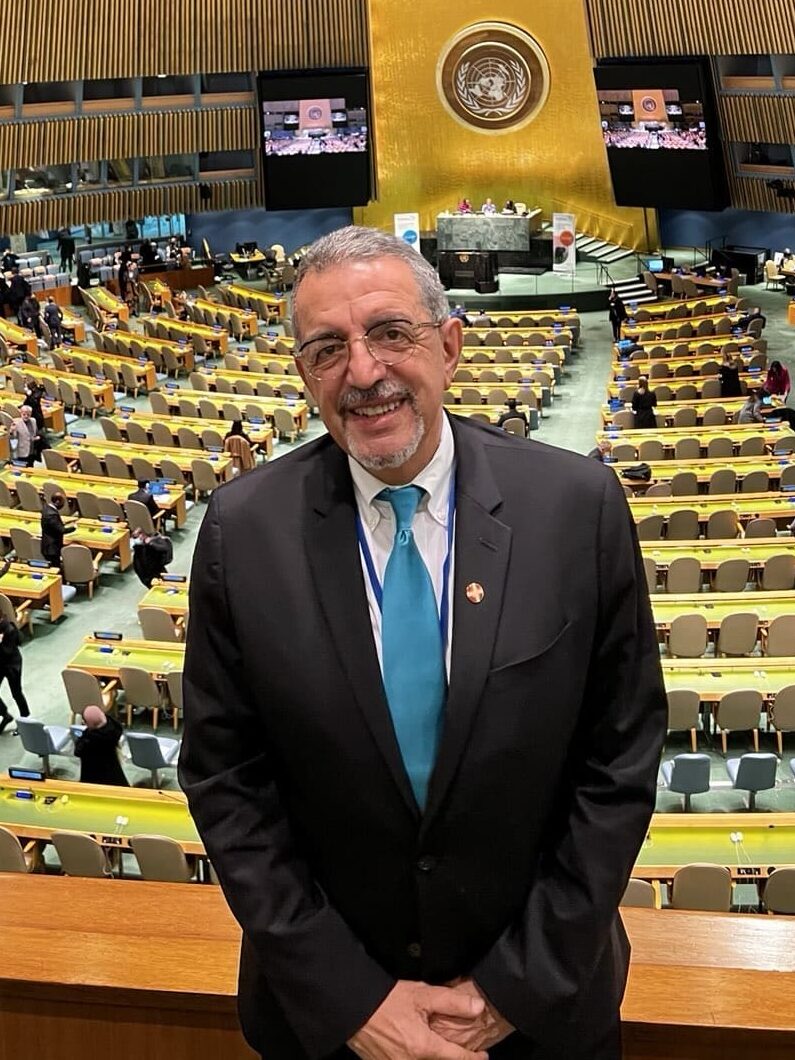
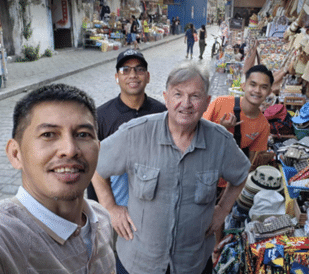
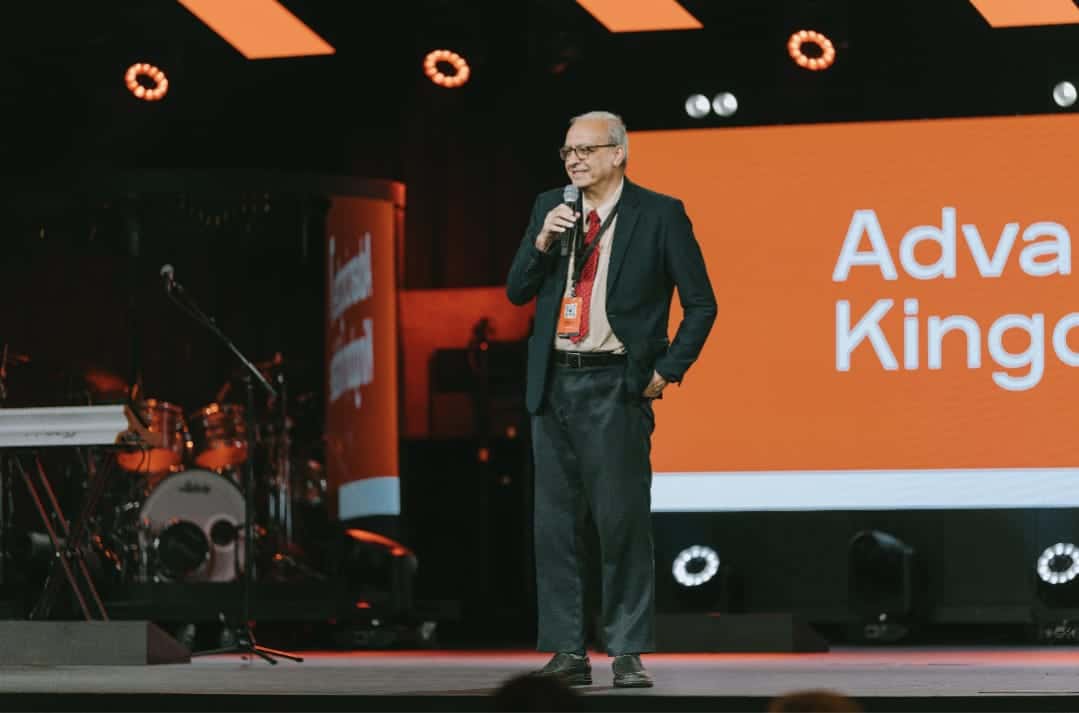


Stay Connected